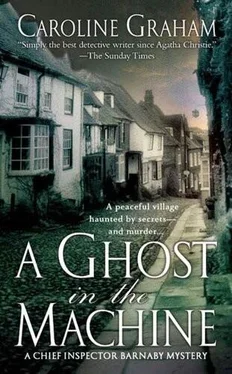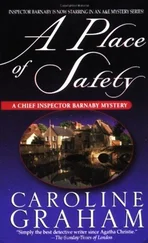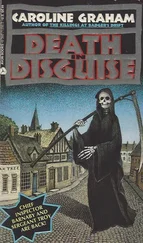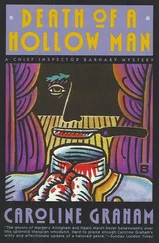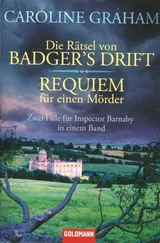Forbes Abbot had not always been so sanguine. Admitted, Benny Frayle had been a write-off virtually from day one as far as making any sensible contribution to village life was concerned. But there had been high hopes of Dennis. It was quickly discovered that he was a professional man, partner in a successful consultancy and also the owner of a large, if strangely transformed property at the posh end of the village. As such he could have taken his place in the community and been well respected. The Parish Council would have welcomed him with open arms; ditto the Homemade Wine Club. However, it didn’t take Forbes Abbot long to decide that first appearances could be very deceptive and that there was rather more to the newcomer than met the eye.
First, though he was as attractive as any middle-aged man shut in an office all day handling other people’s money had any right to be, he remained unmarried. Then there was the absence of visitors, of either sex, to the house. And everyone knew what the word “loner” stood for. But what caused the most unease throughout the local rank and file was Dennis Brinkley’s hobby.
That every man should have one was agreed. It kept them out of mischief and from under their wives’ feet. A nice bit of DIY, gardening, bowls or snooker, mysterious activities in the potting shed – fine. Killing machines – something else.
Not that killing per se was frowned on. This was the country, after all. Several families in the village and surrounding farms had a properly licensed shotgun, as many a rabbit or pheasant had discovered to their cost. One or two people who were more serious about the sport were members of a gun club at Causton and thought fine fellows for it. Boys will be boys, after all.
But the problem here was a matter of scale. One man, one gun, one target – what reasonable person could argue with that? But weapons of mass destruction within the confines of the home…And it wasn’t as if they were the sort of thing your average man in the street could recognise.
War memorabilia, fair enough. Badges and medals, ration books, the odd German helmet, shells and gas masks – such sentimental souvenirs could bring back lovely memories to those of a certain age. But you’d have to be a six-hundred-year-old pile of dust, as one historical mastermind explained in the Horse and Hounds, happily to recall Brinkley’s monstrosities.
One of the first things Dennis had done before moving into the old primary school was knock the place about. This was to be expected – a school was not a domestic dwelling. But instead of a nice conversion, all the interior walls and ceilings had been taken out, leaving a huge, empty shell reinforced with iron girders. Modest living quarters were then built taking up barely a third of the space. All this caused plenty of talk and speculation, which the removal van’s contents – a few tea chests and some ordinary, old-fashioned furniture – did much to defuse. Then, barely a week later, the machines arrived.
Not that they were recognised as such. Disassembled, their various parts, massive and sometimes strangely shaped, had been transported in specially constructed crates. Four men had carried these into the house and had left several hours later carrying the crates, now dismantled and roped together.
A short while after this, more men arrived with ladders and scaffolding and were in and out for three days, knocking and hammering. The minute they left, the village was in there, starting with the chairman of Neighbourhood Watch and his consort. Others followed in order of seniority. Alas, all were disappointed. They were courteously received, shown into the rather small living room but not encouraged to browse. And so it continued for the next ten years.
This meant few of the locals were destined to see the constructions assembled in all their glory, for the windows in the machine room were tall, extremely narrow and very high up. Even by jumping in the air one still only got the barest glimpse of a dangling loop of rope. Or a massive iron claw.
But Mrs. Crudge, who was allowed to wax the floor-boards on which the machines were precisely placed, relayed sensational descriptions as to their extraordinary appearance. Apparently there were large cards printed and set in glass boxes next to each exhibit, giving a detailed history as to their fearsome capabilities. Some of the boxes had illustrations that Mrs. Crudge said fair turned her stomach. Worse than the Chamber of Horrors at Madame Tussauds. Not what you’d call a nice sort of hobby at all. And she was quite right. For the war machines were not a hobby for Dennis, but an all-consuming passion.
He remembered vividly the moment this sprang into being. He was fourteen and until then had shown no genuine interest in anything at all. He played no sports and had no friends – at least none he brought home. Eventually, somewhat shamefaced, his parents admitted to each other that their only child was as dull as ditchwater.
There was only one TV set in the house and Dennis’s father kept a firm eye on the control knob. So Dennis read, simply because he could and it was something to do. As her son seemed indifferent to subject matter his mother changed his library books when she changed her own. She tried to select an interesting mixture: teenage fiction, true adventure – sailing, mountaineering and so on – biology and the natural world, or history. It was in this section she had come across a work entitled The Soldier’s Armoury: Twelfth to Sixteenth Century.
Dennis opened it, sucked in his breath and cried, “Wow! Just look at this!”
The page in question showed a contraption for breaking knees, elbows and neck, then screwing the captive’s head round till his spine snapped. Mrs. Brinkley had barely drawn a protesting breath before her son, tightly hugging the book, rushed to his bedroom and, unlike the unfortunate man in the illustration, never looked back.
Over the next twenty years Dennis rooted out every scrap of information extant on the period in question. His shelves were crammed with relevant books. Holidays were spent in museums all over the world poring over manuscripts describing battles and photographing weaponry, armour and all the cumbersome but lethal machinery of early war-making. The artefacts were very fragile and only once, in a library in Verona, had he obtained permission to trace a document. This was a map showing the Battle of Montichiari (one thousand lances, seven hundred archers). As Dennis touched the faded, ivory parchment he felt the warm golden earth, running with the blood of warriors, incarnate beneath his fingertips.
Gradually he built up a small collection: a sheaf of exquisitely balanced longbows; a gun carriage supporting a vast crossbow so heavy that two men were needed merely to handle the bolt; a rusted helmet with a horsehair crest and hinged side pieces.
He was almost forty before it occurred to him that there was nothing to stop him owning a facsimile of one of the great early war machines themselves. He drew up precisely detailed plans, even though they would never be put to any practical use. He started with the trebuchet, a giant leather catapult on a winch mechanism in a frame thirty feet tall, used for hurling rocks and boiling liquids over castle walls. Dennis followed this with a belfry, a movable tower capable of holding over a hundred men, and began the search for a craftsman with the necessary skills to build them. As this was being done he began looking for a suitable property to house his new treasures.
Dennis had been delighted with the purchase and eventual transformation of Kinders. Now never an evening passed but that he did not enter the vast space holding the war machines. He especially liked to be there at dusk, when their grotesque shadows met and mingled, spreading like grey mist beneath his slippered feet.
Читать дальше
